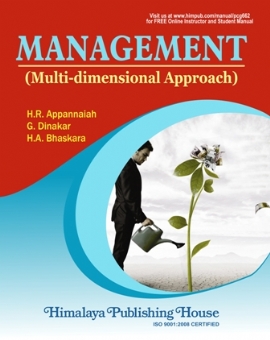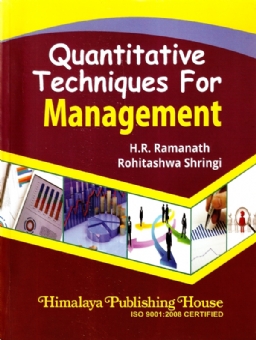Quality, ethics and global business environment are posing several challenges to current business managers. Managing an organisation, irrespective of size, is an excitement, experience and a big challenge for them. If they can give an insight into principles of management, internalise them and start adapting them to satisfy the situational needs, they can become effective managers. The organisations in which they work will have a steady and sustainable growth. Successful managers take positive and sound managerial decisions based on these time-honoured management principles.
Many great thinkers on management, and “Management Gurus”, have contributed for the sustainability of management principles. Four management principles (Planning, Organising, Leading and controlling) enunciated by Henry Fayol about hundred years ago, have bacome today’s basic mantras of management process. Management principles are not static and will be changing with the growth of economy, society and passage of time. Effective managers visualise the change and design their operations accordingly. Management facilitates managers to take sound managerial decisions.
Management explains its domain in terms of principles and practices to manage men (human factor) and material (non-human factor) in an organization. An attempt is made in this work to blend time-honoured management principles with modern management practices, supported by information technology. Managers can lean on these principles to formulate their strategies and adopt them for the sustainable growth of their organizations. Written in a simple style, readers can easily understand the various management principles and practices. In this backdrop, this work – “Management – Multi-dimensional Approach” is produced which provides a comprehensive picture on management principles and practices.
Each chapter starts with an “insight” which provides an overview of the chapter content. Chapter theme is presented in sequential order commencing with the analysis of concept and logical flow of the theme. Relevant theories concerned with the theme are explained. Appropriate examples are given for better understanding the concepts and theories of the chapter. Vital feature is that each concept or theory or relevant additional information in each chapter is presented in margin box or as an open margin item. At the end of the chapter, key terms are listed. Chapter summary is presented under “Recapitulation”. Small cases relevant to chapter theme are presented as “Caselets”. Detailed analysis of these caselets by readers and students will enable them to understand the chapter theme. Study questions at the end of each chapter are given. Skill exercises in some chapters are provided to connect theory and information of the chapter with real-time business operations.
Section – A, This section contains eighteen chapters on Management process and other independent issues associated with general management.
Section – B, This section deals with functional aspects of management. Functions such as production and operation, finance, marketing, HRM and strategic management are discussed in this section.
Section – C, This section deals with some supportive issue and applications of management principles to various other activities. Topics dealt in this section are learning organisation, Quality Management – I (General aspects) QM – II (Lean management) QM – III (Six Sigma), Supply Chain Management (SCM) – I (Basic and Inventory Management). SCM – II (Warehouse and Transport Management), SCM – III (IT and Packging), Stress Management, Conflict Management and Services Management.
Contents –
Section – A : GENERAL MANAGEMENT
1. Management – Overview
2. Manager
3. Evolution of Management Thought
4. Social Responsibility of Business and Ethics
5. Planning
6. Organising – I (Basic Aspects)
7. Organising – II (Trends and Practices)
8. Controlling – I (Basics)
9. Controlling – II (Tools and Techniques)
10. Staffing
11. Communication
12. Motivation
13. Morale
14. Directing
15. Delegation
16. Decision-Making
17. Leadership
18. Coordination
Section – B : FUNCTIONAL MANAGEMENT
19. Production and Operations Management – An Overview
20. Financial Management – An Overview
21. Marketing Management – An Overview
22. Human Resources Management – Overview
23. Strategic Management – Overview
Section – C : APPLIED MANAGEMENT
24. Learning Ogranisation
25. Quality Management – I (General Aspects)
26. Quality Management – II (Lean Management)
27. Quality Management – III (Six Sigma)
28. Supply chain Management – I (Basics and Inventory Management)
29. Supply Chain Management – II (Warehouse and Transport Management)
30. Supply Chain Management – III (Information Technology and Packaging)
31. Stress Management
32. Conflict Management
33. Services Management
Glossary
Bibliography







